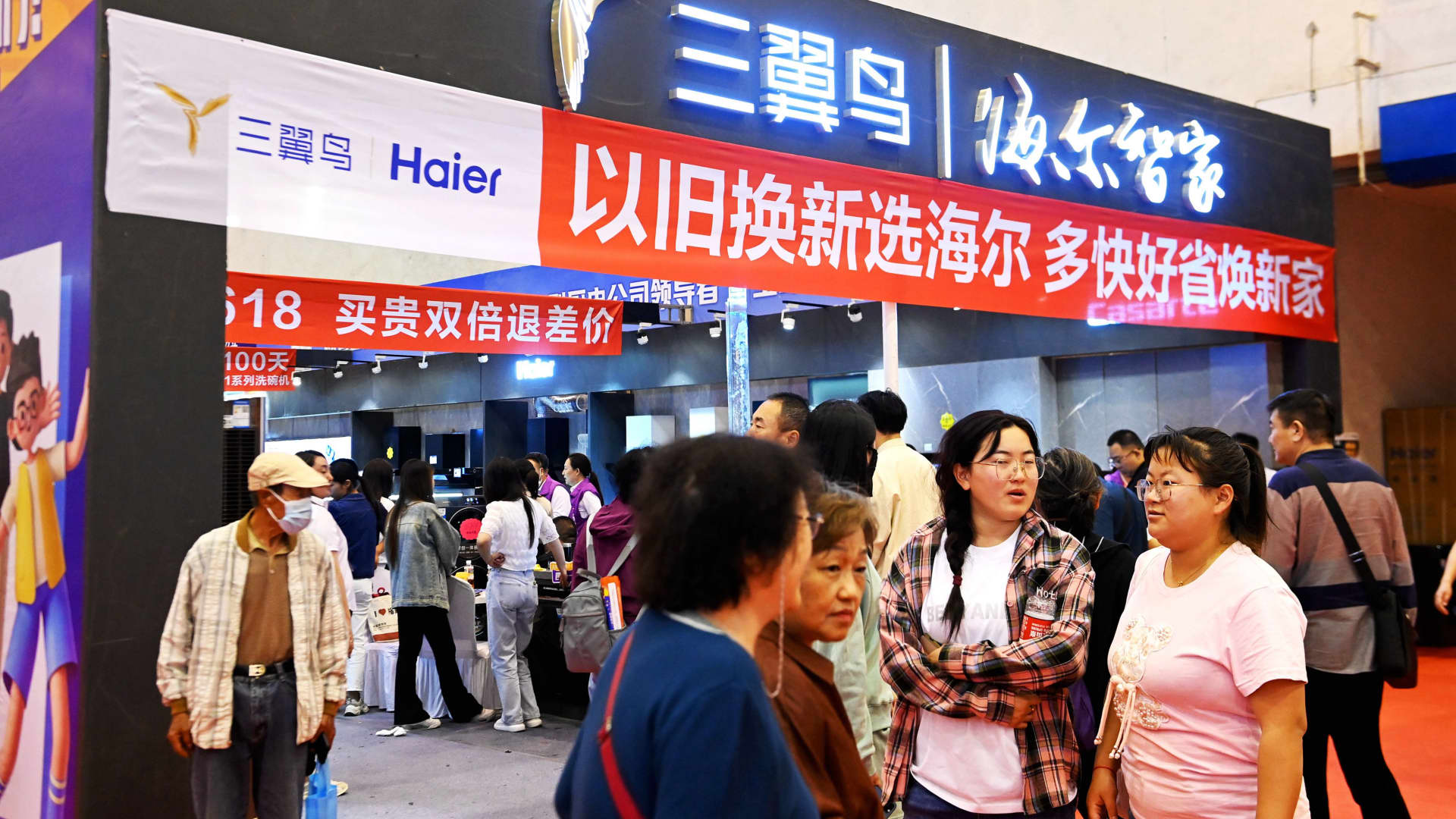China has, in its own way, signaled it wants to support specific kinds of consumer purchases. Authorities on Thursday announced the equivalent of 300 billion yuan ($41.5 billion) in special bonds would go towards trade-ins and equipment upgrades — a significant expansion of an existing program. “Compared to previous policies on equipment upgrade and consumer goods trade-in, the new policy support is larger in amount (allowance level increased) and the sources of funds are clearly specified,” Ding Wenjie, investment strategist for global capital investment at China Asset Management Co., said in a note. “The portion of central government bearing is also higher (central:local =9:1), which would expedite policy execution,” Ding said. “The program also covers more areas, such as trucks, machinery, home decoration and smart home appliances, in addition to previously announced auto and home appliances.” She expects autos, industrials and home appliances to benefit. The policy at least doubles the subsidies for new energy and traditional fuel-powered vehicle purchases to 20,000 yuan and 15,000 yuan per car, respectively. The policy also laid out specific subsidies for home renovations and consumer purchases of refrigerators, washing machines, televisions, computers, air conditioners and other home appliances. The document said each consumer could get subsidies of up to 2,000 yuan for one purchase in each category. Major Chinese home appliance stocks rose on Friday. The three largest mainland China-traded names in the category — Midea, Gree and Haier — rose by between roughly 5.8% and 8.3%. That’s in contrast to mild gains in the broader mainland China indexes. The 300 billion yuan ultra-long bond issuance is not a new government allocation, but rather a more detailed designation of a 1 trillion yuan ultra-long bond program announced earlier this year. “The amount is beyond market expectations; we expect equipment stocks to react positively,” Morgan Stanley analysts said in a report Friday. “300 billion yuan is the largest equipment upgrade subsidy from the central government historically,” the analysts said. Among the stocks they cover, they expect Inovance is one of a few “to benefit most from higher trade-in subsidies for autos and/or home appliances.” Chinese authorities have resisted cash handouts to consumers despite sluggish retail sales growth. Instead, Beijing has made it clear its focus is on building domestic tech capabilities. Even the 300 billion yuan figure is split roughly between consumer-related trade-ins with business-side equipment upgrades. “We see a decent boost to China’s household consumption (RMB 150bn equivalent to 0.3% of 2023 annual retail sales) and corporate capex, but likely a limited overall impact on GDP growth, considering funding support for infrastructure may be smaller than otherwise,” Tao Wang, head of Asia economics and chief China economist, UBS Investment Bank, said in a note. The latest consumption measures follow China’s twice-a-decade Third Plenum, which typically sets the tone for longer-term economic policy. A more near-term-focused Politburo meeting is expected at the end of the month. “The plenum proposed that ensuring and improving people’s livelihood during development is a major task of China’s path to modernization,” said Darius Tang, associate director of Corporates, Fitch Bohua. “Amid the sustained high-speed growth in household savings and relatively sluggish consumption … we expect that the Chinese government would increase investment in the field of education, healthcare and pension that are directly linked to people’s livelihoods and well-being, which is conductive to eliminating residents’ worries, boost consumer confidence and convert the current excessive household savings to consumption.” — CNBC’s Michael Bloom contributed to this report.

 Blog Post6 days ago
Blog Post6 days ago
 Accounting1 week ago
Accounting1 week ago
 Economics1 week ago
Economics1 week ago
 Personal Finance1 week ago
Personal Finance1 week ago
 Economics1 week ago
Economics1 week ago
 Personal Finance1 week ago
Personal Finance1 week ago
 Accounting1 week ago
Accounting1 week ago
 Finance1 week ago
Finance1 week ago









